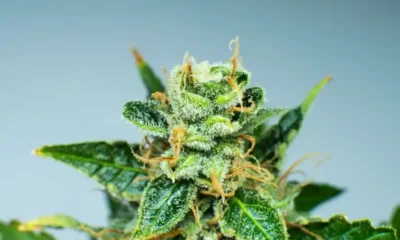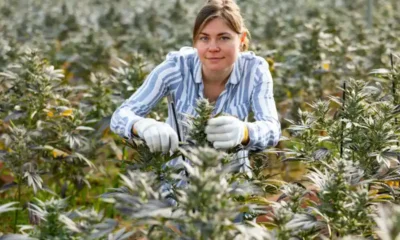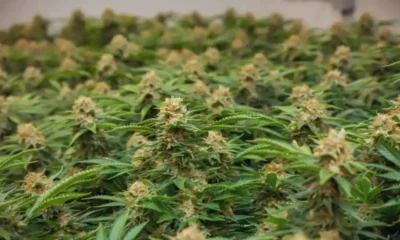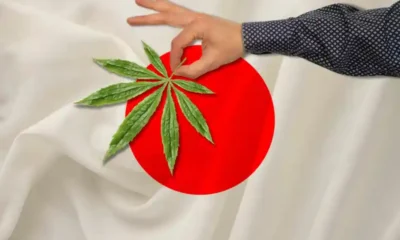Connect with us
Published
2 years agoon

Growers in Idaho can now look forward to cultivating hemp if they should so choose, following the approval of the Idaho State Hemp Plan by the U.S. Department of Agriculture, according to a news release from the Idaho State Department of Agriculture.
The release notes that hemp producers and handlers will be licensed under Idaho code and the 2018 Farm Bill. Applications for hemp licenses online begin on November 8 and will be available online.
The department’s site also will include resource documents to guide applicants through the process, noting, “To help expedite the process for anticipating applicants, please review the following Hemp License Timeline.”
Idaho is the last state in the country to approve the agricultural production of hemp, which is from the same family of plants as cannabis, containing less than 0.3 percent tetrahydrocannabinol (THC). The passing of the plan is a major milestone for the state’s ongoing discussion surrounding the production and transportation of hemp.
“We had a ton of work to do once policy makers decided the direction they are going to go in. We are charged with implementing that program as best we can,” Chanel Tewalt, the deputy director of the ISDA, told KTVB 7.
Back in 2019, three out-of-state truck drivers were arrested for transporting hemp through the state, with all receiving jail time and finally a suspended sentence; instead, each driver received a misdemeanor and had to pay fees and restitution.
Later that year, the Idaho Governor Brad Little issued an executive order that changed Idaho’s rules on interstate transportation of hemp to fit with the federal law. It did not legalize hemp in the state but it changed the transportation laws to match those of federal law.
The new law did not allow selling hemp products to Idaho consumers, and ISDA began working on a hemp plan to submit to federal officials this fall, which will allow farmers to grow hemp next year.
“I’m very proud of the entire ISDA team for working so quickly to implement the new law, and I know we could not have gotten here alone,” ISDA Director Celia Gould said in a statement. “We extend our thanks to the Governor’s office, industry stakeholders, Idaho State Police, USDA and the Idaho law enforcement community for excellent collaboration and assistance.”
Hemp is a desired crop for a number of reasons, though, because it comes from the same family of plants as cannabis, many incorrectly assume that the purpose of hemp use and legalization mirrors that of cannabis use (like a user seeking a psychoactive high, even though hemp is so low in THC that consuming it would not give that same result).
“It’s not a drug at all, it’s an actual healthy commodity and that’s all it is,” said Tom Cornie, co-owner of 1,000 Springs Mill in Buhl. “We were really in support of hemp grain because of its high nutritional value, hemp grain has Omega-2s and 6s and amino acids, so it’s got as much protein as soybeans and is extremely agreeable to the body and so it fits into our line of products.”
The National Agricultural Statistic Service (NASS) began collecting data from hemp growers about crop production for the first time in October, and the results of the survey are expected to be made available by February.
“This inaugural hemp survey will establish a necessary benchmark and provide critically-needed data for the hemp industry,” said Kevin Barnes, NASS acting administrator. “The information collected can help inform producers’ decisions about growing, harvesting, and selling hemp as well as the type of hemp they decide to produce. The resulting data will also foster greater understanding of the hemp production landscape across regulatory agencies, producers, state and Tribal governments, processors, and other key industry entities.”


Congressional Progressive Caucus Says Dems Can Legalize MJ By Winning House, Senate Majorities This November


Cannabis Industry Has 440,000 Full-Time Workers


Federal Register Proposes Adding Fentanyl, Removing MDMA From Drug Testing Panels


Feds File Charges Against Maine Weed Grower After Probe Spanning 20 States


The Cannabis Market Is Booming in Japan


German Authorities to Ban Cannabis Smoking, Vaping at Festivals Including Oktoberfest
